The riverboat captain is a storyteller. Captain Don Sanders shares the stories of his long association with the river — from discovery to a way of love and life. This a part of a long and continuing story.
By Capt. Don Sanders
Special to NKyTribune
One hundred fifteen years ago, this last week, the luminous American author, scribbler, huckster, and former steamboat pilot Samuel “Mark Twain” Clemens died on Thursday, April 21, 1910, 22 minutes after 6 in the evening. “Sam,” as I call him, expired in his bed at “Stormfield,” his palatial mansion in Redding, Connecticut, where he lived from 1908 until his death.
This year, 2025, is a significant anniversary date ending in “5” for many events, as five-year increments are equally divisible into decades and centuries. Let’s see…

In the summer of 1955, my family and I explored the Hamilton Boat Club on the Great Miami River in Hamilton, Ohio. We’d been around the Ohio River since the Spring of 1952 as guests of Walter and Lorraine Hoffmeier, owners of the 52-foot wooden houseboat, PAL-O-MINE. After three enjoyable seasons aboard the PAL, my folks agreed we needed our own boat. My father, Jess Sanders, Jr., and my mother, Anna Margaret, felt boating was good family fun, especially for their three rambunctious sons. So one sunny Saturday, we piled into whatever “machine” my folks owned at the time, probably the coral-colored Pontiac, and drove nearly 40 miles to the isolated maina on a river so shallow, all the houseboats were of the stern paddlewheel variety. Soon after arriving, we climbed aboard an all-steel sternwheel houseboat for a demonstration cruise to the dam and back.
Most of the club members worked at the nearby paper mill. Pleasure boating was their recreational release from the drudgery of the pulp plant. Following the memorable boat ride, we joined in a communal picnic where my parents met a man who owned an all-wooden paddlewheeler resting “on the hard,” ashore. That evening, our family sat comfortably by kerosene lamp light as the fellow lulled my folks into purchasing his wooden boat instead of the all-metal one we came to see. When we left for home around midnight, the daintily graceful boat, the SHANGRI LA, was ours.

Within days, Dad trucked our new paddlewheeler, built in 1947, to the Cincinnati Public Landing, where, after much difficulty getting the wooden boat into the Ohio River in one piece, it awaited me after I got out of school that afternoon. Our family enjoyed many memorable days aboard the scow-bowed paddleboat, MARJESS, renamed for my parents, for nearly five years before they sold it. Taken overland to Williamstown (KY) Lake, the paddlewheeler eventually crashed onto the shore, sank, and later burned. (See page 14 in my book, THE RIVER, for a more detailed description of our happy days aboard the MARJESS.)
May 19th, 1955, will be the 70th Anniversary of “Camp Day,” the day my brothers Dick and Bob, and I joined a neighbor boy claiming a section of the riverbank on the Licking River as our own. For the next five seasons, we spent as much time as possible swimming and having Huck Finn-style adventures on the ancient waterway bisecting the Commonwealth of Kentucky before emptying into the youthful Ohio River across from Losantiville, a once fluvial hamlet now grown into the metropolis known as Cincinnati.

Perhaps, nothing shaped the early years for the three Sanders lads as did their halcyon summer days on the Licking. Those were our “Happy Days” of the ‘50s, sans malt shops, teenyboppers, and all the usual trappings of the era. Instead, we enjoyed clandestine outings on the forbidden Licking River with charred potatoes roasted over open campfires, riding driftwood trees and old blue logs, mud slides, jumping off overhanging tree branches, and diving deep to the bottom of the cold river on hot, summer days.
The Summer of 1960, 65 years ago this year, found me working a miserable seasonal job with a small construction company after a year in college. My folks persuaded me to avoid returning to the “carnival boat,” as they deemed the excursion steamboat, AVALON. However, after earning my first paycheck, I shocked everyone after purchasing a one-way bus ticket to LaCrosse, Wisconsin, on the Upper Mississippi River. Ticket in hand and footlocker packed, I set off on an uncomfortable Greyhound Bus ride to rejoin the Steamer AVALON. For the rest of the year, I stayed with the AVALON, working directly for one of the toughest Mates ever to run a steamboat deck, Captain Clark Campbell “Doc” Hawley. Although invited to work aboard the AVALON after the end of 1960, I returned to college instead.

Five years later, after receiving my diploma from Dr. Robert Martin, President of Eastern Kentucky University, I joined the DELTA QUEEN as a relief Watchman for Bruce Edgington and Jimmy Powell so these older fellows could get some time off. In those days, there were no days off. If one wanted some time away from their boat job, they either had to have someone fill in for them or else quit and hope their slot was still open when they returned. Captain Wagner wanted me to join his crew aboard the QUEEN, but 1960 was still the days of racial segregation on the steamboats. I was primarily a deckhand aboard the AVALON, but on the DELTA QUEEN, there was no place for a white boy on the deck crew. So “Big Cap,” Captain Ernest E. Wagner, found a slot for me, relieving the Watchmen, and after their vacations, a place for me became available in the engine room. Again, I did not stay long. By September, I enlisted in the USAF for four years and three months.
My obligation to Uncle Sam was over by the end of December 1969, so I left the USAF and rejoined the DELTA QUEEN in January of 1970, 55 years ago. As I had left the engineering department five years earlier, Cap asked, “Do you want to return to the engineroom or go on deck?” I chose the deck. I knew I wanted to become the Captain of the QUEEN. So, Cap’n Wagner made me his Second Mate, or “Head Watchman” as listed on the Certificate of Inspection. Within six months, I passed the US Coast Guard exam for Inland Mate and assumed the First Mate’s position after Captain Hawley left the DELTA QUEEN for the BELLE of LOUISVILLE. Within two more years, I “sat” for my Unlimited Master’s ticket and became the Alternate Master of the DELTA QUEEN with Captain Ernie.

Although 1976 doesn’t fit the five-year examples I’ve illustrated, it was the Bicentennial Year, or 200th Anniversary, of our nation’s birth on July 4, 1776. This month, however, on April 19, 2025, was the 250th Anniversary of the Battle of North Bridge at Concord, Massachusetts, which started the whole Revolutionary War shebang, thereby allowing my 4th Great-Grandfather, Nathaniel Sanders, to witness General Cornwallis surrendering his sword and armies at Yorktown. The Bicentennial Year found me as the first Master of the P. A. DENNY, Sternwheeler at Charleston, West “By God” Virginia. On July 4th, during a lull in our first cruise, a red-coated British Army general officer and I shared a chicken box lunch around a picnic table at Marmet Lock and Dam on the Great Kanawha River.
After many exciting times on the DENNY, returning to the DELTA QUEEN and MISSISSIPPI QUEEN in the late 1970s, allowed me to meet the vivacious, flame-haired “Queen of the MQ,” Neptune’s daughter, “The Fish,” whom I wrote about extensively in these columns and included in “THE RIVER.”
After Fish and I broke up, my next maritime adventures were aboard the ACADIAN VICTORY, an offshore supply vessel with cement poured into the hull for stability, journeying between Norfolk and Bermuda. Following a pleasant stay in port at St. George’s Harbour, the reckless Captain chose to risk the tiny ship in a tropical storm with waves 30 feet high. For twenty-four terrifying hours, fear practically petrified me. Then, miraculously, no longer afraid, I loved each mountainous wave the VICTORY climbed, crested, and came screaming down into the next trough like a roller coaster snorting speed. After limping into Norfolk, the VICTORY went into the shipyard for repairs. All the crew, except the two mates and me, quit the ship, refusing to sail with the “Kamikaze Captain.” I just figured that was what to expect when sailing at sea. Before the VICTORY left for another trip into the Bermuda Triangle, I developed a severe sinus infection and left the ship for home.

Once home in Covington, in the Spring of 1980, 45 years ago, I began dating my “neighbor girl,” Peggy, who lived behind my lovely 1874 Eastlake Italianate townhouse, which I’d recently sold to Cornelia Reade, the daughter of Captain “Billy Goat” Reade, a steamboat pilot of note on the steam paddlewheel towboats hauling coal and heavy cargoes on the Ohio River. Peg and I soon married, and following a memorable honeymoon in Washington, DC, we returned home and started Can-Do All-American All-Aluminum Recycling Company. For the next 11 years, Can-Do was open seven days a week, closing only for the major national holidays. During that time, we went from two outdated buildings in a failed downtown urban development to an expanding location where the business still thrives, but is now called Can-Dew Recycling. Recently, I telephoned the 4th owner and reminded him of his company’s history, which Peggy and I started 45 years ago.
While operating the recycling business, two great sons, Jesse and Jonathan, blessed our family. We couldn’t have asked for better little boys who’ve grown into fine young men than they.
By 1990, working seven days a week, 52 weeks a year, the river once more beckoned. Casino boats, or riverboat gaming, became the new employment opportunities on the river. During my recycling years, I renewed my USCG Master’s and First Class Pilot licenses twice, so when I yearned to be on the water again, I had my licenses ready. The following year, we sold Can-Do and moved to historic Natchez on the Lower Mississippi River. I planned to join the crew of the GOLDEN LADY, an enlarged version of a casino paddlewheeler built for the city on the bluff. Although “GOLDY” never came to Natchez, I did break into the gambling boat business where I served aboard five exceptional riverboats, commanded four of the five, and was the First Officer on the fifth.
Although I imagine any year can become the anniversary year of something, I have had my fair share of commemorations lately. I’m not complaining. Bring them on. Or, as Cap’n Ernest Johnson, the first African American Watchman of the DELTA QUEEN, was fond of reminding, “Just don’t pick at ‘em, just take ‘em as they come.”
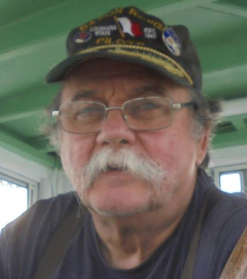 Captain Don Sanders is a river man. He has been a riverboat captain with the Delta Queen Steamboat Company and with Rising Star Casino. He learned to fly an airplane before he learned to drive a “machine” and became a captain in the USAF. He is an adventurer, a historian and a storyteller. Now, he is a columnist for the NKyTribune, sharing his stories of growing up in Covington and his stories of the river. Hang on for the ride — the river never looked so good.
Captain Don Sanders is a river man. He has been a riverboat captain with the Delta Queen Steamboat Company and with Rising Star Casino. He learned to fly an airplane before he learned to drive a “machine” and became a captain in the USAF. He is an adventurer, a historian and a storyteller. Now, he is a columnist for the NKyTribune, sharing his stories of growing up in Covington and his stories of the river. Hang on for the ride — the river never looked so good.
Purchase Captain Don Sanders’ The River book
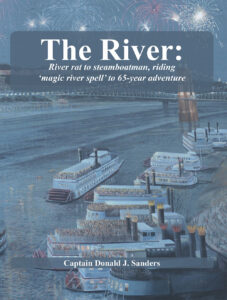
Capt. Don Sanders The River: River Rat to steamboatman, riding ‘magic river spell’ to 65-year adventure is now available for $29.95 plus handling and applicable taxes. This beautiful, hardback, published by the Northern Kentucky Tribune, is 264-pages of riveting storytelling, replete with hundreds of pictures from Capt. Don’s collection — and reflects his meticulous journaling, unmatched storytelling, and his appreciation for detail. This historically significant book is perfect for the collections of every devotee of the river.
You may purchase your book by mail from the Northern Kentucky Tribune — or you may find the book for sale at all Roebling Books locations and at the Behringer Crawford Museum and the St. Elizabeth Healthcare gift shops.
Click here to order your Captain Don Sanders’ ‘The River’ now.








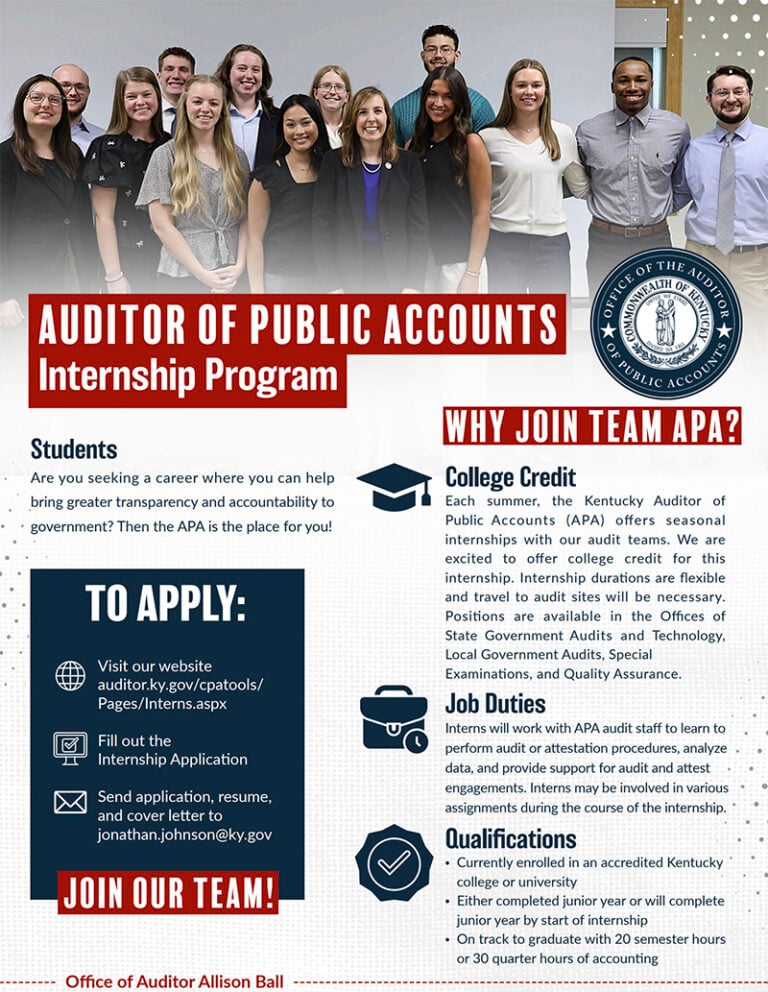
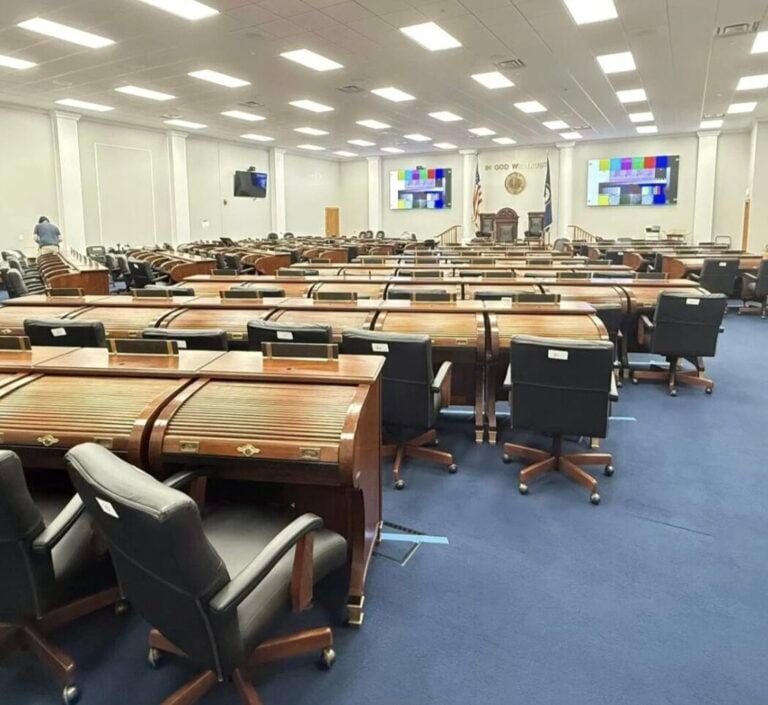

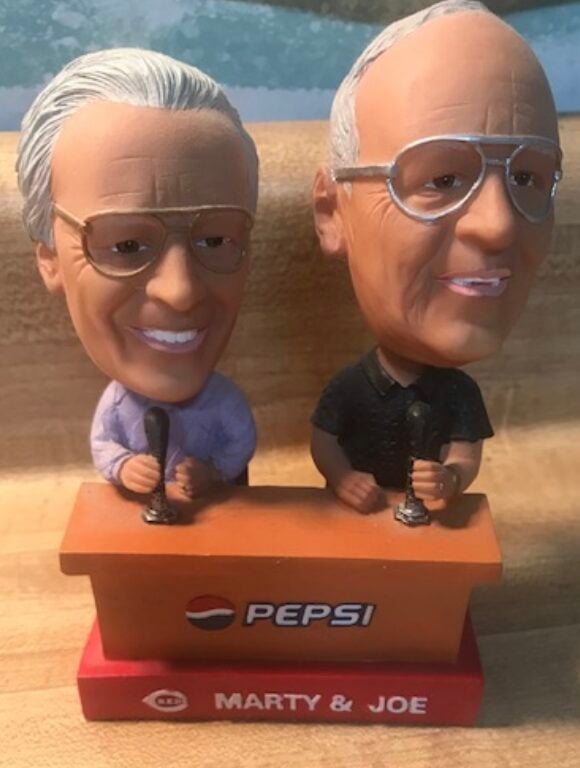



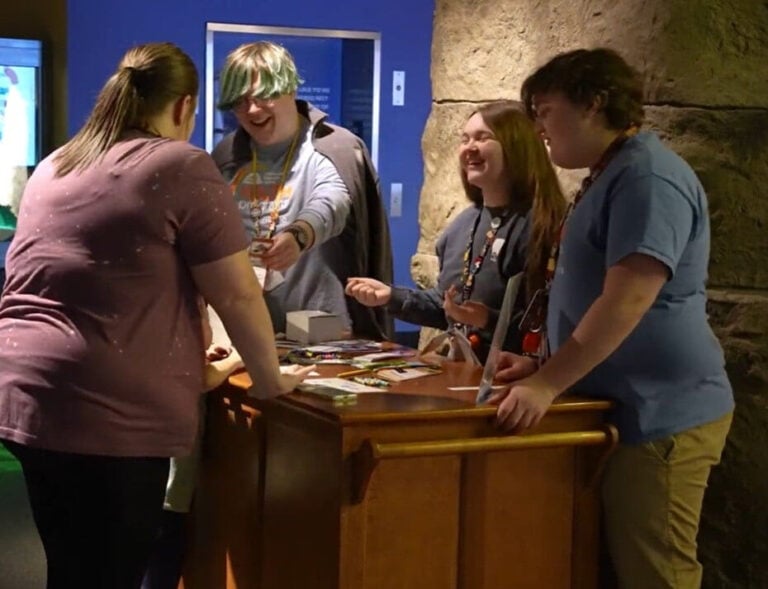
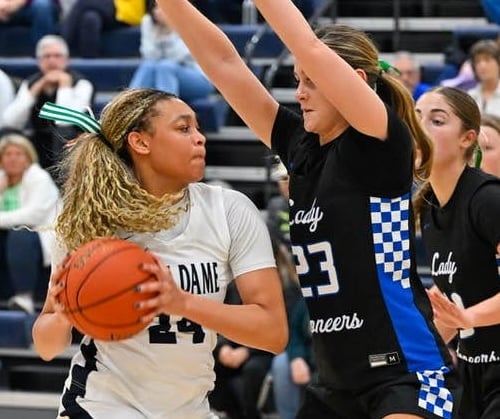

These stories easily light up our mind’s-eye with flickering scenes cast from our memory projectors. Scenes that will for us early-on river rats (even non-river rats, too) remind us of our “halcyon” days. Days that were filled with adventure, daring, and doing in a gentler and safer time. Days we grew up in and survived to be better geared for adult lives. Thanks, once again, Capt. Don and NKYTribune for another weekly stretch of life on the river!
My name is Clarence Herlitzka , I was born at La crosse. I met Betty Blaike at the landing when the Delta Queen, Came ashore. She walked up to me an asked what do think of the Delta Queen, I loved The Boat, so my response was, The Delta Queen sails in to the heart of America, Everything else takes you away from America. I left La Crosse in 1961, Drafted in the Army, I never went back to stay, But I miss that River to this day, I lived in a House Boat with my Grand Mother as a kid. I still Love The Queen!
As always, an interesting take on a life well lived. Much appreciated.
Since we attended different schools in different years, in different river towns at the same time together, “The River” brings back memories of how we all survived living adventurous, entertaining, occasionally risky & yet fulfilling lives! This edition neatly compresses those events. Makin’ memories I always say! If I see you in Marietta this coming September, I’ll beg your autograph on my copy. Thanks always to the Northern Kentucky Tribune for helping to keep the history living.